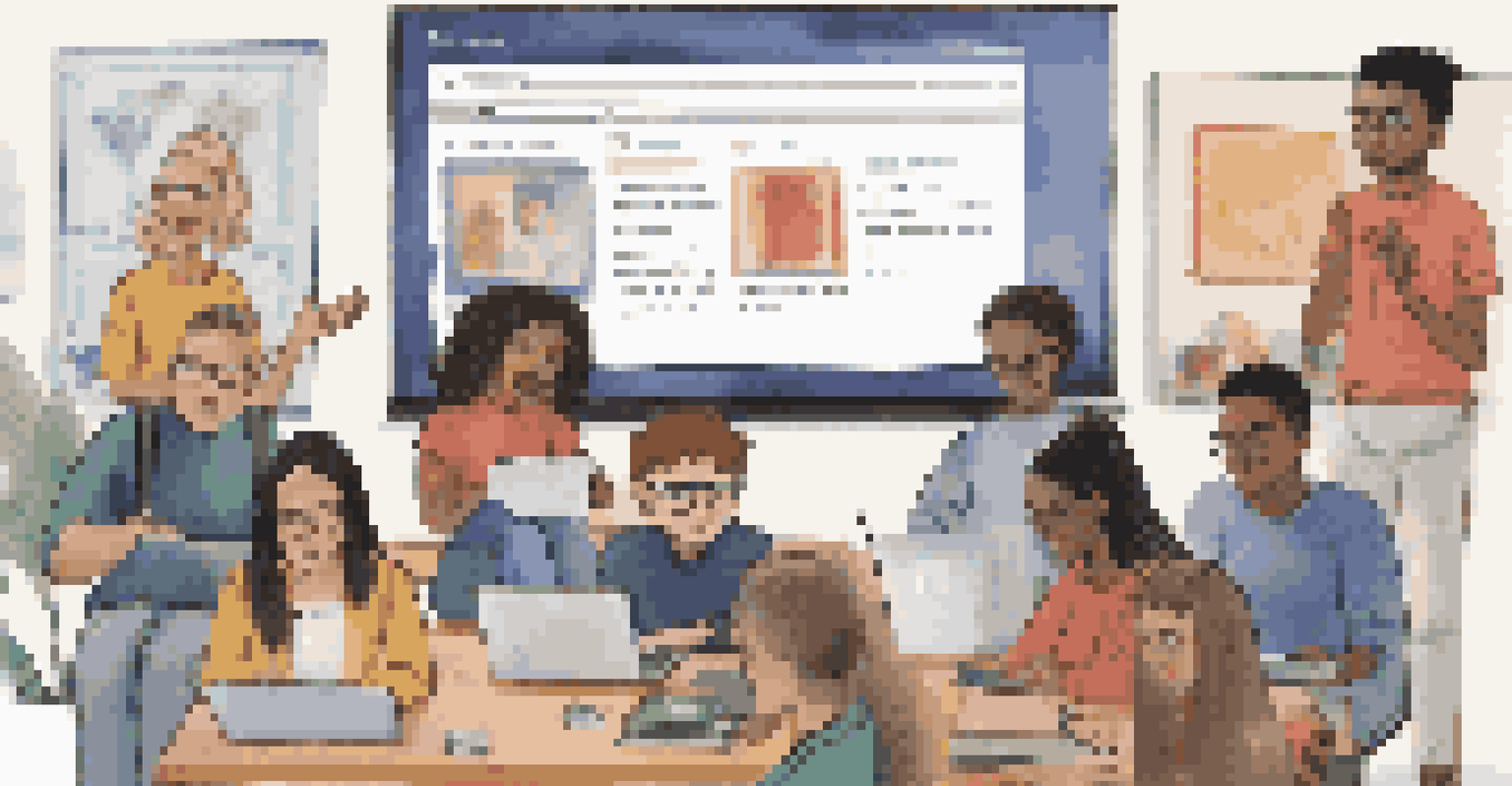Embracing Continuous Learning for Technical Skills Growth

Understanding the Need for Continuous Learning in Tech
In today’s fast-paced tech landscape, continuous learning has become essential. With new tools and technologies emerging almost daily, staying updated is not just beneficial; it’s necessary. Embracing this mindset allows professionals to remain relevant and competitive in their fields.
An investment in knowledge always pays the best interest.
Consider how smartphones have evolved over the years. If developers hadn’t kept learning, we might still be stuck with basic apps lacking functionality. Continuous learning fosters innovation and keeps you ahead in a world that demands adaptability.
Moreover, continuous learning isn’t just about keeping up; it’s about growth. It equips you with the confidence to tackle new challenges and encourages a culture of curiosity, which is vital in any technical role.
The Benefits of Lifelong Learning for Professionals
Lifelong learning offers a treasure trove of benefits for professionals. First and foremost, it enhances your skill set, making you more versatile and capable of handling diverse projects. This versatility can lead to better job opportunities and career advancement.

Additionally, continuous learning can significantly boost your problem-solving abilities. By exposing yourself to various concepts and technologies, you learn to approach challenges from multiple angles, leading to more innovative solutions.
Continuous Learning is Essential
In the rapidly evolving tech landscape, ongoing education is crucial for staying relevant and competitive.
Finally, engaging in ongoing education fosters networking opportunities. Joining workshops or online courses allows you to connect with like-minded individuals, creating a supportive community that can share insights and resources.
Identifying Your Learning Objectives and Goals
Before diving into learning, it’s crucial to identify your objectives. What skills do you want to acquire? Are you looking to specialize in a particular area, or do you want a broad understanding of various technologies? Defining your goals sets a clear path for your learning journey.
The only way to do great work is to love what you do.
For instance, if you're a web developer interested in enhancing your JavaScript skills, specifying that goal will help you choose the right courses and resources. This focused approach ensures that your efforts yield measurable results.
Moreover, setting short-term and long-term goals can keep you motivated. Celebrate small victories along the way to maintain momentum and remind yourself of the bigger picture in your professional growth.
Choosing the Right Learning Resources and Methods
With countless resources available, selecting the right ones can feel overwhelming. Start by exploring various formats—books, online courses, webinars, and podcasts. Each format can cater to different learning styles, so find what resonates with you.
For example, if you’re a visual learner, platforms like YouTube or online courses that include video content might be ideal. Alternatively, if you prefer reading, consider diving into technical books or blogs that focus on your areas of interest.
Set Clear Learning Goals
Identifying specific objectives helps create a focused and effective learning journey.
Additionally, don’t overlook the power of hands-on practice. Engaging in projects or contributing to open-source initiatives can solidify your learning and provide real-world experience.
Creating a Structured Learning Schedule
To truly benefit from continuous learning, a structured schedule is vital. Carving out dedicated time in your week for learning ensures that it becomes a priority rather than a sporadic activity. Consider setting aside a few hours each week to focus solely on skill development.
For instance, you might allocate Monday evenings for online courses and Thursday afternoons for hands-on coding practice. Consistency is key; the more regularly you engage with the material, the easier it becomes to absorb new information.
Moreover, be flexible with your schedule. If a particular topic sparks your interest, don’t hesitate to adjust your plan to explore it further. This adaptability keeps the learning process enjoyable and relevant.
Staying Motivated and Overcoming Challenges
Maintaining motivation throughout your learning journey can sometimes be challenging. It’s normal to hit roadblocks or feel overwhelmed by the volume of information. To combat this, remind yourself of your initial goals and the reasons you embarked on this journey.
Joining study groups or finding a learning buddy can also help keep you accountable. Sharing your experiences and challenges with someone else can provide encouragement and new perspectives on overcoming hurdles.
Stay Engaged and Measure Progress
Maintaining motivation and tracking your advancements are key to successful continuous learning.
Lastly, don’t forget to celebrate your progress. Acknowledging your achievements, no matter how small, can reignite your passion for learning and reinforce your commitment to growth.
Measuring Your Progress and Success
As you engage in continuous learning, measuring your progress is essential. Set benchmarks to evaluate your skills and knowledge at different stages. This could be through quizzes, project completions, or even peer feedback.
For example, after completing a coding course, challenge yourself to build a small application or contribute to a project. This practical application of your skills is a clear indicator of your growth.

Additionally, reflecting on what you’ve learned can help reinforce knowledge. Keeping a journal of your learning experiences and insights allows you to track your development, making it easier to identify areas where you want to focus next.